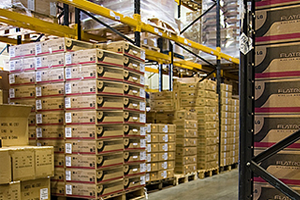
UAE Customs Regulations: A Guide on Customs Duty and More
Imports to the United Arab Emirates (UAE) are increasing steadily due to several reasons, such as the UAE’s strategic location, consumer market, stable currency, expanding online retail sector, and comprehensive economic partnership agreement (CEPA) with India. It was estimated that there was an increase of about 23% in the UAE’s imports in 2022 compared to the previous year.
As businesses increasingly import and export their goods, they should be aware of the rules and regulations about UAE customs. Hence, we have compiled for you some useful information about UAE customs regulations to help you stay informed.

What is customs clearance in UAE Customs Regulations?
Customs clearance in the UAE customs regulations is the process by which it is confirmed that goods entering or leaving the country comply with the local laws. As per UAE customs rules and regulations, several taxes and import duties are imposed on these goods. Further, these regulations also require departing and arriving passengers carrying financial instruments or cash exceeding AED 60,000 to declare it to customs authorities. Customs clearance involves the following steps:
- Preparing and submission of relevant documents such as shipping documents, certificates of origin, and invoices to the customs authorities.
- Assessment of shipment to decide the applicable taxes and duties
- Payment of relevant taxes, duties, and fees
- Release of goods for delivery
Factors Affecting Customs Charges in UAE Customs Regulations
The following factors influences customs charges under UAE customs regulations:
-
Duty in UAE Customs Regulations
Every country imposes a tax on all imported products called duty. The calculation of duty is as a percentage of the product’s value. Several factors affect the rate of customs duty. The most important of these are the value of goods, country of origin, type of goods, and trade agreements between the UAE and the concerned nation.
-
Value Added Tax (VAT) in UAE Customs Regulations
VAT is a tax imposed under the UAE customs rules and regulations on duty, shipping charges, and the cost of goods. According to the VAT law in the UAE, businesses should get a VAT registration if the total value of taxable imports or supplies within a year exceeds AED 375,000.
-
Anti-dumping Duty in UAE Customs Regulations
The UAE customs rules and regulations enforce anti-dumping duty on import to maintain fairness in market conditions for local goods manufacturers. This discourages the lower cost of imported goods such as ceramic tiles, car batteries, and hydraulic cement compared to the native market rate.
List of banned items in UAE under the UAE Customs Regulations
The following items are banned or restricted under the UAE customs rules and regulations:
- Alcohol
- Narcotic or recreational drugs
- Counterfeit currency
- Black magic items
- Artwork of publications defying Islamic teachings and values
- Gambling tools
- Weapons or replica weapons
- Cylinders of non-flammable compressed gases
- E-cigarettes
- Powders in unsealed packaging or exceeding 350 ml per item
- Electronic devices (restricted)
Different customs departments implementing UAE customs regulations
Every Arab emirate has a customs authority of their own. The Federal Customs Authority (FCA) represents the UAE internationally and nationally and carries out the UAE customs rules and regulations.
Further, the GCC customs law supports the following local customs agencies to enact customs-related policies for the emirates and run their administrative tasks:
- Customs in Abu Dhabi
- Customs in Dubai
- Customs in Sharjah
- Customs in Ajman
- Customs in Umm Al Khaimah
- Customs in Fujairah
Updates to the UAE Customs Regulations
The UAE customs regulations saw significant updates in 2024. Some of these are:
- October 2024: An amended version of Executive Regulation of Federal Decree’s Law No. 8 of 2017 was published by The Federal Tax Authority (FTA). The law pertains to value-added tax (VAT). Implementation of the new amendment is scheduled in November 2024.
- September 2024: Implementation of the updated template for the unified GCC Print of Customs Declaration in the Mirsal system. A QR code that enables the scanning and verification of the declaration information and some fields to add a few additional information are the updates to the template.
- January 2024: Implementation of the amendments to the unified customs tariff table of the UAE customs rules and regulations. HS codes for products in sectors such as computers, chemicals, machinery and equipment, pharmaceuticals, transport equipment, and food & beverages are affected by the amendments.
How would Ryan Worldwide help you conform to UAE customs regulations?
Ryan Worldwide is a Dubai-based company focusing on shipping and logistics. Without customs clearance services, we help our clients comply with UAE customs regulations and prevent mistakes and penalties. At Rayn, you can avail of the following services:
- Logistics and warehouse facility
- Customs clearance in Dubai
- Freight forwarding
- Wholesale and distribution
- Moving services, including pet relocation
- Transport services
- Exhibition/Expo Import clearance
- Cites and Caviar Import
Frequently Asked Questions:
-
Which are some of the items banned in Dubai customs under the UAE customs regulations?
Some of the banned items in Dubai customs under the UAE customs regulations are:
- Narcotic drugs
- Gambling
- Nylon fishing nets
- Live swine
- Tires (Used, reconditioned, and inlaid)
- Radiation
- Items defying Islamic faith
- Sharp objects
- Firearms
- Laser guns
- Walkie-talkies
- Drills
- Flammable prototypes
- Liquids
- Fresh foods, live plants, and seeds
-
What do you mean by duty-free in the UAE?
Duty-free in UAE refers to the duty-free shops in Dubai, Sharjah, Abu Dhabi, Ras Al Khaimah, and Fujairah airports selling luxury products such as perfumes, jewelry, and watches.
-
Which items enjoy duty exemption under UAE customs regulations?
The following items enjoy duty exemption under the UAE customs regulations:
- Personal and household items
- Gifts (up to AED 3,000)
- Tobacco (Limited quantity)
- Alcohol (Limited quantity)
- Electronics
- Imported by specific entities
- National factory shipments
- Rough diamonds
- Goods exported to other countries



Recent Comments